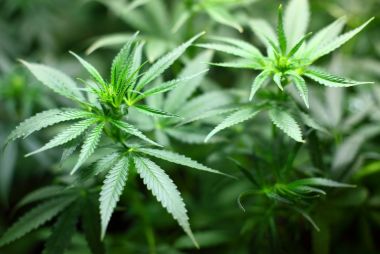Christianity and cannabis: Does legalising it make it OK?

The Liberal government of Canada's Prime Minister Justin Trudeau is to push for the legalisation of cannabis. If it succeeds – and in spite of its majority it will face determined opposition – it will make Canada the largest Western democracy where the drug is legally available for recreational use. Trudeau has pledged to keep the drug out of the hands of children and the profits out of the hands of organised crime.
So I can go to Canada and smoke pot?
In due course, perhaps so. But you can already smoke it in many countries around the world, including the US.
I thought it was illegal in the US?
It is, at a federal level, but some states have legalised it.
How does that work, then?
No one's quite sure. But the confusion over cannabis in the US is a reflection of the whole cannabis debate. In many countries – like the UK – it's seen as a dangerous drug. But more and more countries are legalising it on the grounds that it's not that dangerous. Other countries distinguish between cultivating and using it privately and selling it, while others put a limit on the amount a person can have in their possession.
So is it dangerous?
That's a good question. It is mildly carcinogenic, though not as much as tobacco. The main danger comes through its active ingredient, tetrahydrocannabinol (THC), which activates areas of the brain responsible for memory, pleasure, coordination and time perception. It also stimulates the brain to produce dopamine, associated with euphoria.
Sounds rather nice, actually, not much different from alcohol.
Well, not everyone approves of alcohol, which is also a drug. But high levels of THC – found in many modern strains of the drug – can induce delusions. In young people they can impair development. Long-term use can result in depression and loss of motivation, as well as loss of the ability to concentrate. According to the Royal College of Psychiatrists, "those who use cannabis particularly at a younger age, such as around the age of 15, have a higher than average risk of developing a psychotic illness, such as schizophrenia or bipolar disorder". Oh, and it's addictive.
Now it sounds appalling.
Yes. Many campaigners worry that those arguing for its legalisation are not taking account of the fact that modern 'skunk' is so much more potent – with two or three times the level of THC – and is very different from what they might have tried in their misspent youth. It's difficult to see how one type could be made legal and other types criminalised. On the other hand, campaigners for legalisation argue that the law is widely flouted, so makes sense to try to control cannabis use rather than trying to ban it.
Let's go back a bit. If it's legal to smoke cannabis does that mean it's OK for a Christian?
All sorts of things are legal, but that doesn't mean you should do them. In the case of cannabis, there are serious problems for Christians that are arguably quite different from alcohol. For one thing, while alcohol is responsible for a great deal of harm through increased violence, deaths and injuries through drink-driving and many premature deaths and wasted lives through alcoholism, it's perfectly possible to consume it in moderation without being affected by it. In using cannabis the euphoric effect is the whole point. That doesn't necessarily make it wrong, but Christians value self-control and moderation.
You say it's not necessarily wrong?
We shouldn't go beyond Scripture, which doesn't mention cannabis. However, drunkenness – the abuse of alcohol – is explicitly condemned in the Bible. It's hard to see why the biblical writers would have made an exception for cannabis or other mind-altering drugs.
Some people argue that it has a medicinal use.
Yes, they do. Various trials have shown that the active ingredients might be helpful in treating cancer and epilepsy and controlling chronic pain. Campaigners say this medical use is being hindered by fears over opening the floodgates for recreational use.
It's a hard one.
Yes. Christians should be very, very slow to get involved in something that has the potential to affect their bodies in unhealthy and unhelpful ways. On the other hand, we should be led by the evidence. If medical marijuana really can help people we shouldn't just be saying, "marijuana is bad". And just because we're aware of the dangers of cannabis, it doesn't mean that the answer is to maintain a ban on it. Perhaps legalising it and controlling it is the best way forward.
But that doesn't mean Christians can smoke it?
I really don't think it's wise.
Follow Mark Woods on Twitter: @RevMarkWoods











